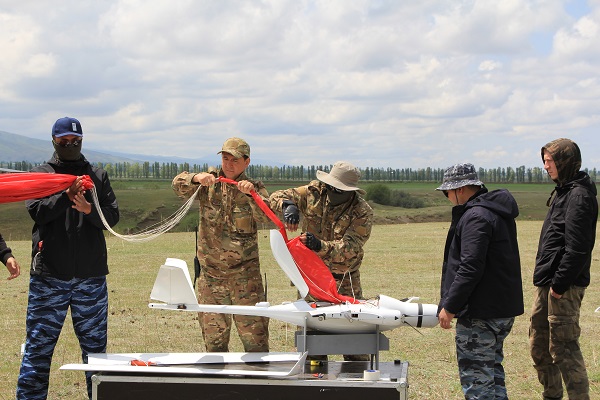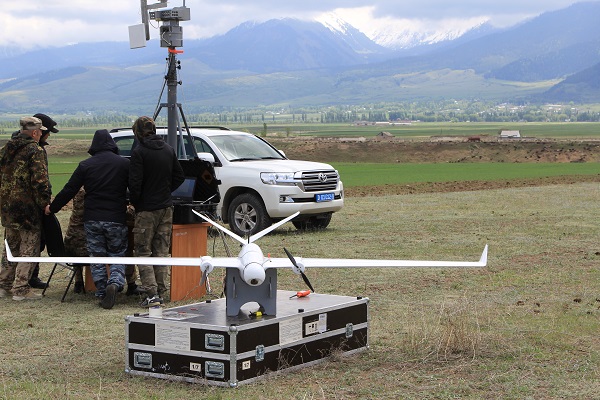UNODC uses innovative approach to fight organized crime and drug trafficking in Kyrgyzstan
The Counter Narcotics Service of the Ministry of Internal Affairs of the Kyrgyz Republic and the UNODC Programme Office in the Kyrgyz Republic conducted a second of four research exercises to detect areas of wild-growing or illicitly cultivated cannabis and ephedra on19-24 June 2023 in Issyk-Kul region.
The technology behind drone plant detection involves the use of hyperspectral imaging cameras that capture images in different wavelengths of light. These cameras are mounted onto drones and can detect differences in plant health, density, and structure. By analyzing these differences, the Law enforcement can identify specific types of plants, such as cannabis and ephedra. The data collected by the cameras is then processed using sophisticated algorithms to create maps that show the location and extent of the targeted plants. Over 250 hectares were mapped during this research exercise, resulting in orthophotomaps that will be used for further monitoring activities.
“This exercise was part of our broader efforts under UNODC Project ‘Enhancing the capacity of the Mobile Operational Teams of the Counter Narcotics Service’,” said Mr. Andrey Seleznev, Head of the UNODC Programme Office in Kyrgyzstan. “It also demonstrates how modern technology can be effectively used in countering transnational organized crime, including drug trafficking."
According to Mr. Ulan Sultanov, Head of the Counter Narcotics Service under the Ministry of the Internal Affairs of the Kyrgyz Republic, drone technology is cost-effective compared to traditional surveillance methods such as helicopters or manned aircraft, making it a viable alternative for law enforcement agencies with limited resources. “Drones have several advantages over traditional methods of plant detection, including speed, accuracy, and cost-effectiveness. They can cover large areas quickly and provide detailed imagery that is difficult to obtain through ground-based surveys. However, there are also challenges associated with drone plant detection, including regulatory issues related to privacy concerns and airspace restrictions”, Mr. Sultanov concluded.
Using innovative approaches such as drones and machine learning algorithms, UNODC is helping to combat organized crime and drug trafficking in the Kyrgyz Republic. This cutting-edge technology is aiding law enforcement agencies in detecting areas where such plants are being grown so they can take action against those responsible for illegal activities.
UNODC is dedicated to assisting countries in their efforts to reduce crime and promote justice around the world. Through its innovative use of technology, UNODC is helping to make a difference in Kyrgyzstan’s fight against organized crime and drug trafficking. The project is implemented with financial support from the Russian Federation.
story in Russian language
***
For more information, contact Vasilina Brazhko
Communications and PR Specialist
UNODC Criminal Justice Programme in Central Asia
+996775987817 WhatsApp
vasilina.brazhko [at] un.org


